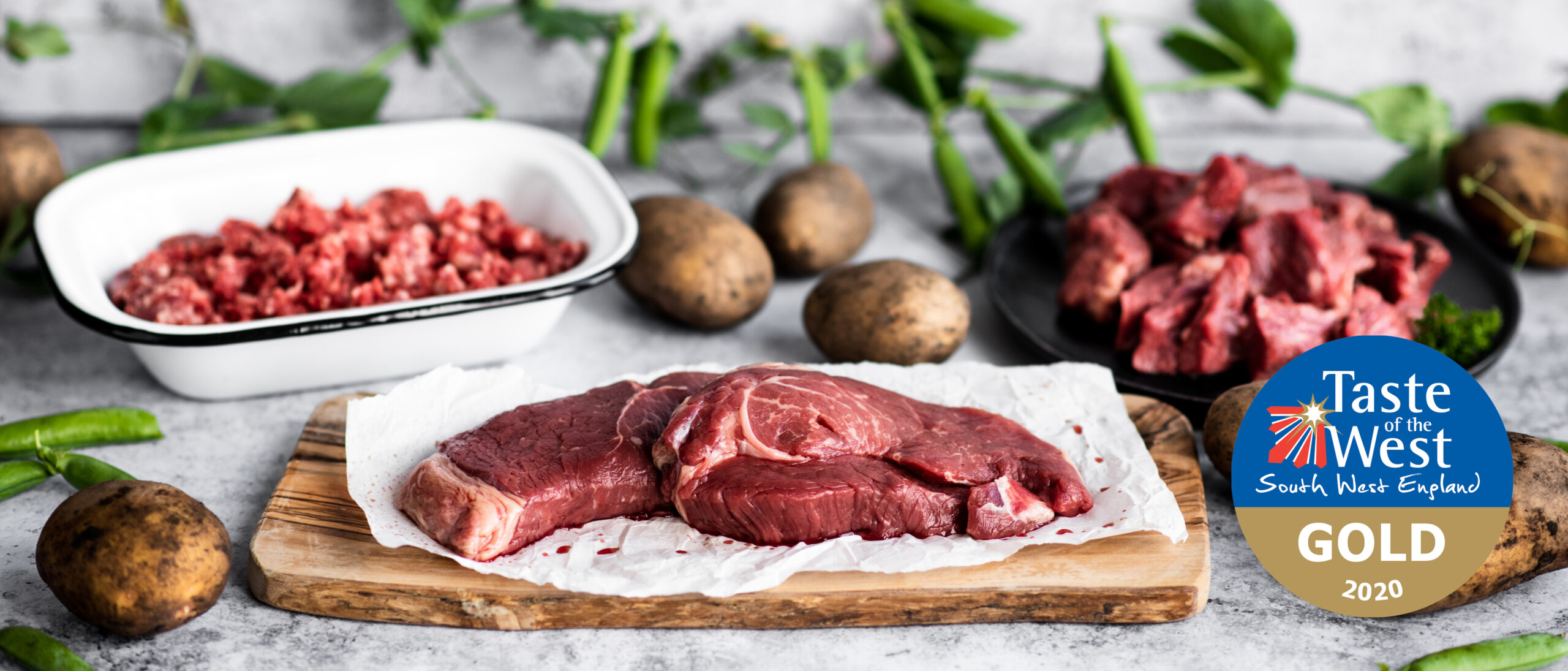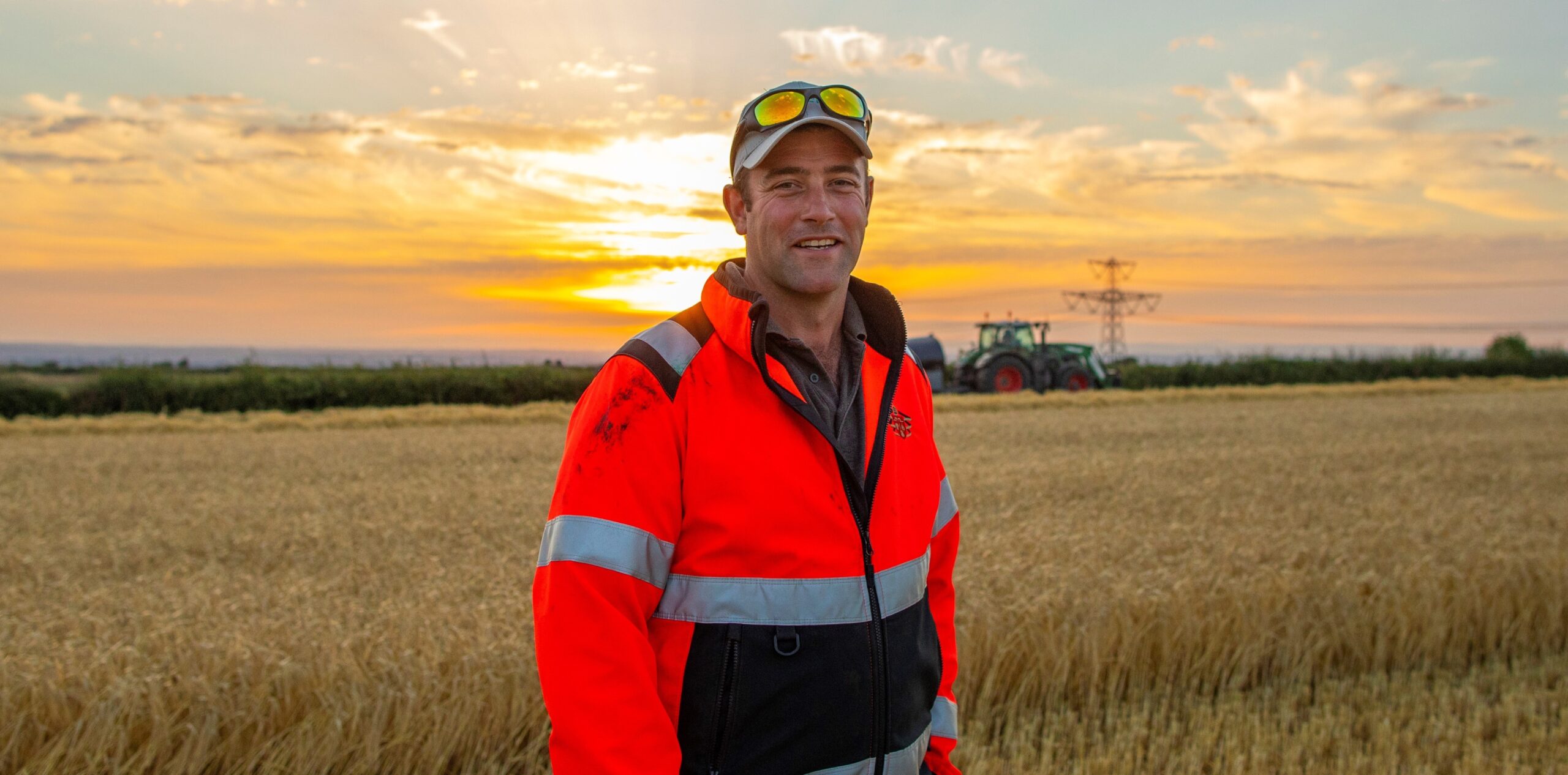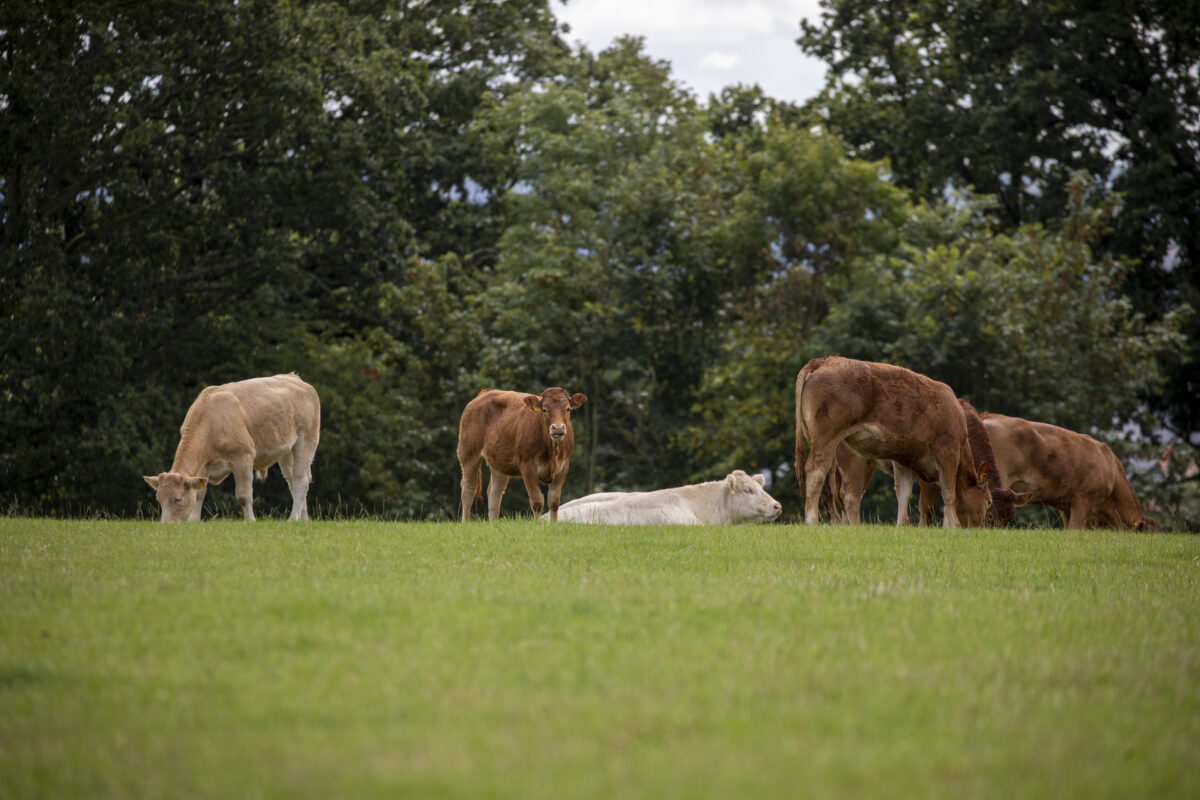The story behind Dyson Farming’s South West Beef & Lamb production.
The story behind Dyson Farming's South West Beef & Lamb production.
We believe our meat is special, not only because it tastes great, but we also have an interesting story to tell. Our overall farming ethos is to create a long term, regenerative model that will leave a positive land legacy now and in 100 years’ time. Our farming practices have been designed to protect and improve animal wellbeing and to look after the environment.
The South West is where our livestock farming started and just over two years ago, we began working with Farleigh Road Farm Shop, a local farm shop near Hinton farm, selling them lamb and whole carcass beef. The partnership is still going strong, with beef & lamb going there every week, and importantly, clearly labelled as Dyson Farming so that people can be reassured that it is indeed our beef & lamb.
We have learnt a lot in this time and gradually we have expanded our customer list into a variety of different butchers, restaurants, pubs and hotels.
We also supply beef & lamb to Dyson’s Malmesbury Head Office every fortnight, and this collaboration has allowed us to develop a close relationship with Dyson’s Executive Chef, Joe Croan, who uses our beef & lamb to feed over 4000+ Dyson employees at three separate catering locations. The feedback we get from Joe is invaluable and his experience as a top chef helps us understand what he requires in terms of meat quality and consistency.
Award-winning quality
It is important that our beef & lamb quality is tried and tested. To do this, we entered the Taste of The West competition last year to get some feedback from independent food experts about the quality of our meat. This included the tenderness, taste, visual appearance and packaging of the cuts. We were delighted that our topside joints, ribeye and sirloin steaks achieved GOLD awards, with the topside joint selected as the highest placed beef product in the 2020 competition

Innovating in Beef & Lamb quality
Part of the Dyson Farming ethos is to keep on innovating. We use technology to generate a digital footprint for every animal, tracing its parentage and place of birth and allowing us to track all movements as well as its health and wellbeing.
We have also been working closely with the team at the GoodBeef Index to grade our cattle, allowing us to monitor cattle as they grow. They have developed a scanning process which provides us with a measure of future eating quality, nutritional value, and environmental credentials. This helps us develop diets and handling systems to produce the best quality and environmentally sustainable beef. This type of meat grading is similar to those used in places like the US, Australia and Japan. It is a relatively new innovation and is only used by a handful of farmers in the UK but could become more widely used in the future.
As Peter Lord, Dyson Farming’s South West Farm Manager, explains:
“The GoodBeef Index is hugely helpful for both us and our customers; we receive a quality score which endorses our product, and our customers understand the different grades of meat under this system. This transparency allows both parties to set a fair price and being able to rely upon a certain quality goes a long way to ensuring consistency of quality. For consumers, it gives confidence that the meat they are purchasing is great quality with genuine provenance.”
Sustainable Beef & Lamb production
Livestock production is an important part of our circular farming system, utilising land that is more suited to grazing. Dyson Farming holds one of the largest single countryside stewardship agreements in the country, protecting sensitive farmland and providing food for bees and other invertebrates that pollinate our crops and livestock have an important role to play in this.
Our beef cattle are cared for on our farms to high animal welfare standards, and when appropriate, housed in state-of-the-art open barn facilities. They eat a mixture of dedicated forage crops and cereals such as wheat and barley that grow on our farms.
Sheep were introduced to our farms to help better utilise permanent pastures and to add valuable nutrients back to arable land while grazing cover crops over winter. Again, every animal can be traced to its mother and place of birth and are well suited to the climate on our farmland.
What about the future?
As Peter explains:
“We have learnt a lot about livestock production since we started, and I am excited about the future. For a start, there is the scope to be much more vocal about the things that we are already doing. People are becoming more interested in where their food comes from and how it is produced.
The beef & lamb we produce is appreciated by our customers and we take pride in our sustainability credentials. The opportunity is to keep on innovating and explaining to people what we do and why we do it, so they are reassured that they are getting a quality product.”

The Estate Office,
Cyclone Way, Nocton,
Lincoln LN4 2GR
